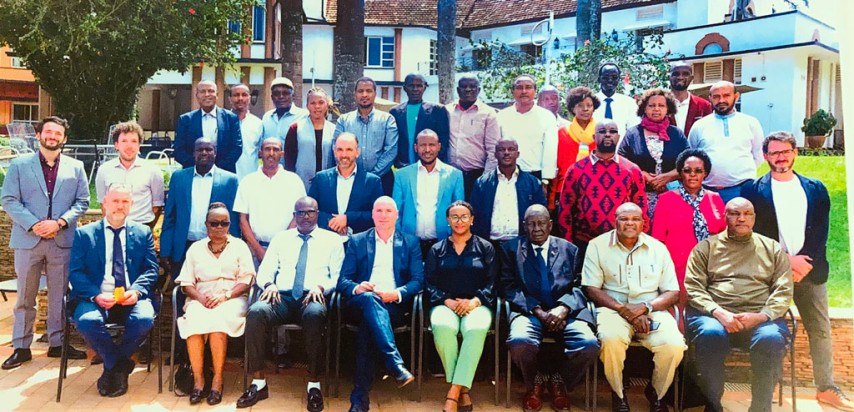IGAD-Interpeace-FAO complete joint study on human security conditions in Karamoja Cluster

IGAD’s Conflict Early Warning and Response Mechanism (CEWARN), Interpeace and FAO completed a joint study on the interaction among violent conflict, food security, climate change, migration and displacement factors in the Karamoja Cluster. The study which was presented to a technical workshop in Entebbe on 28-30 June, is intended to inform interventions that holistically address the region’s human security challenges.
The Karamoja Cluster that straddles the border areas of Ethiopia, Kenya, South Sudan and Uganda has a population of 4.5 million people. The Pastoral and Agro-pastoral livelihoods of its inhabitants are increasingly under pressure due to population growth, urbanisation, resource competition and climate variability.
The study presents a comprehensive mapping of conflict hotspots and institutional and policy obstacles to peace and development programme interventions in the Cluster. The study further reveals the complexity of human security dynamics in the cluster and significant local variations, as well as poor coordination among actors, programmes and investments. In addition, investments have been spread thin in a large number of short-term interventions with limited impact.
